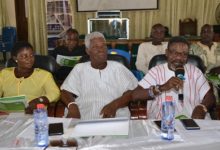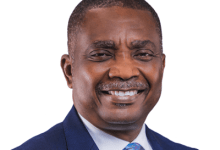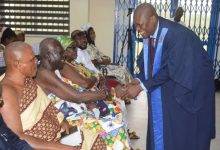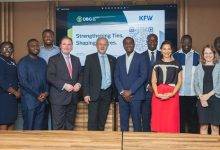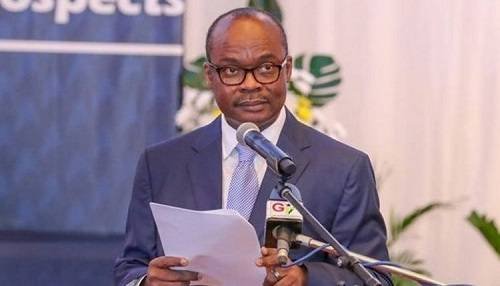
The Governor of the Bank of Ghana (BoG), Dr Ernest Addison has stated that BoG and the government will work to ensure that the country does not derail from the implementation of the International Monetary Fund (IMF) Extend Credit Facility (ECF) programme with Ghana.
“…in Ghana’s recent history, we have not been able to successfully implement an IMF-supported programme in an election year without derailment. The government and the Central Bank are committed to changing that narrative. We recognise the importance of continued macroeconomic stability and an early return to the capital markets, and we will remain committed to ensure that programme implementation stays firm,” Dr Addison said in a statement after the joint press conference between the IMF, BoG and the Ministry of Finance on the second review of the IMF ECF programme with Ghana.
The government reached a Staff-Level Agreement (SLA) with the IMF last Friday after a successful second review.
The SLA will pave the way for the disbursement of $360 million to the country subject to the approval of the management and the Executive Board of IMF, bringing to $1.560 billion the total amount of funds Ghana has received from the IMF.
Ghana is currently implement a three-year balance of payment support with the IMF with an amount of $3 billion to prop up the economy and ensure debt and macroeconomic stability following the growing public debt.
Dr Addison thanked the IMF team for spending the last two weeks with the government and pouring over numbers and discussing matters to move the economy forward.
“We are happy that this effort has not been in vain and we are ending the Mission with a Staff-Level Agreement, which we hope will translate into a Management and Executive Board approval for the release of another tranche of IMF support,” he stated.
He said the government had shown steadfast commitment to a set of policies right from the beginning under very difficult circumstances and had reached a stage where the implementation of the programme was progressing well.
“We completed the first review of the ECF programme in the latter part of last year and today we are at the verge of completing the second review with steadfast implementation of our policy measures. With substantial progress in these measures, we are beginning to reap substantial macroeconomic dividends,” he stressed.
Dr Addison said inflation had dropped significantly from a peak of 54 per cent at end of 2022 to 23 per cent in 2023 and exchange rate remained relatively stable throughout last year, supported by tighter monetary policy and stronger foreign exchange reserves and economic growth surprised on the upside.
He said during the first quarter of the year progress had continued although the country had witnessed some slowdown in the pace of disinflation primarily due to a variety of factors including adverse base drift effects.
“The expectation however is for the disinflation process to resume in the second quarter of 2024 and beyond,” he said.
“We have also continued to strengthen our foreign exchange reserve buffers and our current account balance has improved. Despite the delays in disbursement of some donor support, our foreign exchange reserves have remained steady and is reported at $6.2 billion as of 5th April 2024.
“We will continue to implement the policies that have helped sustain that progress including the innovative Gold for Reserves programme, which has acted as a game changer in our foreign exchange management strategies,” Dr Addison assured.
BY KINGSLEY ASARE

